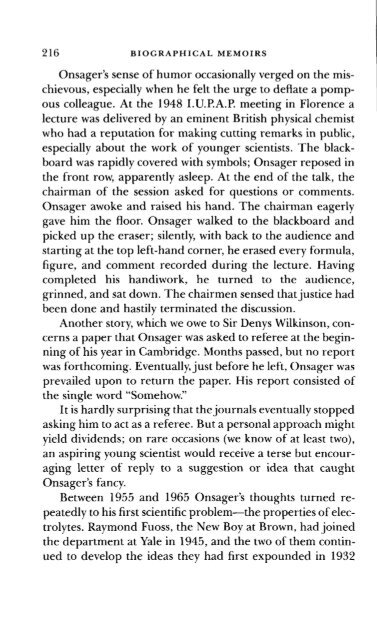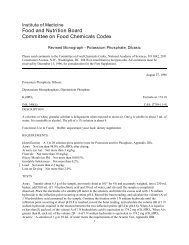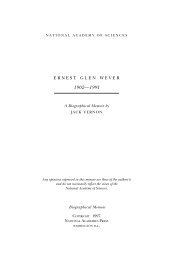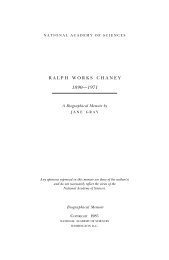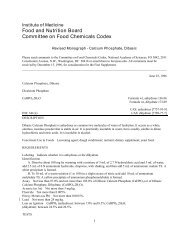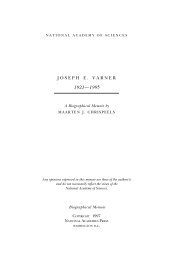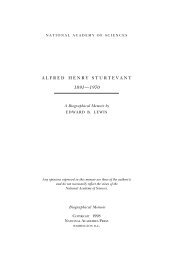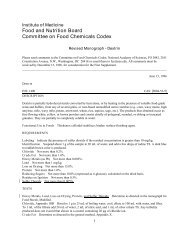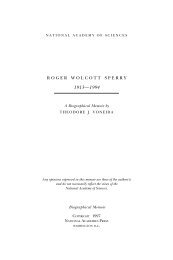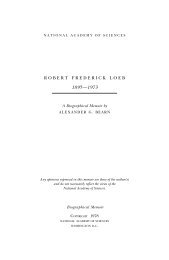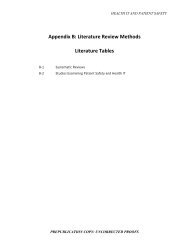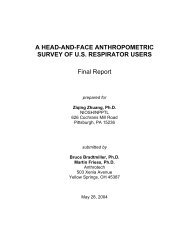LARS ONSAGER - The National Academies Press
LARS ONSAGER - The National Academies Press
LARS ONSAGER - The National Academies Press
You also want an ePaper? Increase the reach of your titles
YUMPU automatically turns print PDFs into web optimized ePapers that Google loves.
216 BIOGRAPHICAL MEMOIRS<br />
Onsager's sense of humor occasionally verged on the mischievous,<br />
especially when he felt the urge to deflate a pompous<br />
colleague. At the 1948 I.U.P.A.P. meeting in Florence a<br />
lecture was delivered by an eminent British physical chemist<br />
who had a reputation for making cutting remarks in public,<br />
especially about the work of younger scientists. <strong>The</strong> blackboard<br />
was rapidly covered with symbols; Onsager reposed in<br />
the front row, apparently asleep. At the end of the talk, the<br />
chairman of the session asked for questions or comments.<br />
Onsager awoke and raised his hand. <strong>The</strong> chairman eagerly<br />
gave him the floor. Onsager walked to the blackboard and<br />
picked up the eraser; silently, with back to the audience and<br />
starting at the top left-hand corner, he erased every formula,<br />
figure, and comment recorded during the lecture. Having<br />
completed his handiwork, he turned to the audience,<br />
grinned, and sat down. <strong>The</strong> chairmen sensed that justice had<br />
been done and hastily terminated the discussion.<br />
Another story, which we owe to Sir Denys Wilkinson, concerns<br />
a paper that Onsager was asked to referee at the beginning<br />
of his year in Cambridge. Months passed, but no report<br />
was forthcoming. Eventually, just before he left, Onsager was<br />
prevailed upon to return the paper. His report consisted of<br />
the single word "Somehow."<br />
It is hardly surprising that the journals eventually stopped<br />
asking him to act as a referee. But a personal approach might<br />
yield dividends; on rare occasions (we know of at least two),<br />
an aspiring young scientist would receive a terse but encouraging<br />
letter of reply to a suggestion or idea that caught<br />
Onsager's fancy.<br />
Between 1955 and 1965 Onsager's thoughts turned repeatedly<br />
to his first scientific problem—the properties of electrolytes.<br />
Raymond Fuoss, the New Boy at Brown, had joined<br />
the department at Yale in 1945, and the two of them continued<br />
to develop the ideas they had first expounded in 1932


